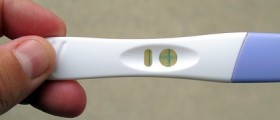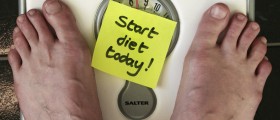
Eating disorders affect many women in their reproductive years. The conditions they are suffering from are serious and may have detrimental effect on their health and cause even more damage if women decide to conceive. It is known that both anorexia and bulimia have impact of infertility. The two conditions also affect the baby if the woman is pregnant and may even be detrimental after delivery (during breastfeeding).
Chances to Get Pregnant
Fertility of women suffering from eating disorders is basically compromised. Fortunately, fertility issues are brought under control once the woman is treated for the eating disorder she is suffering from. So, it may be possible to conceive a child even before the first returning of a menstrual period.
Still, there seem to be problems with fertility that may remain permanent, depending on the individual affected.
The best thing is these women change their eating behavior completely and adopt healthy eating habits. Once the normalize their weight and if they strict to a healthy dietary regime, the chances for them to get pregnant become much higher.
Pregnancy and Eating Disorders
It is true that pregnancy may be compromised in women who return to their nasty and unhealthy eating habits. the risk of pregnancy complications reduces only if the condition is completely absent, if there is no binging and/or purging and if a woman is of healthy weight prior to conception.
In case the woman returns to her distorted eating habit the chances for miscarriage, preterm delivery and cesarean section are rather high. Furthermore, the fetus may be affected by intrauterine growth retardation, babies may be born premature, be of low birth weight and graded lower Apgar scores.
All in all, the major problem is that women tend not to report that they were dealing with eating disorders prior to pregnancy which is quite wrong. This way doctors cannot recognize sign of the disease relapse and timely prevent complications.
After Delivery
The problem does not end with delivery. Namely, such women are prone to postpartum depression. It is estimated that this problem affects around 30% of women with eating disorders once they give birth to their child.
There is one more problem, these women tend not to breastfeed their babies more often than healthy women.
Finally, women who are prescribed some medications for their eating disorder should consult their doctors and check whether the drug should be completely discontinued of the treatment only adjusted.
- www.nhs.uk/conditions/anorexia/
- www.nhs.uk/conditions/binge-eating/
- Photo courtesy of African Fertility Gods by Flickr: www.flickr.com/photos/28567825@N03/3281520839/

















Your thoughts on this
Loading...